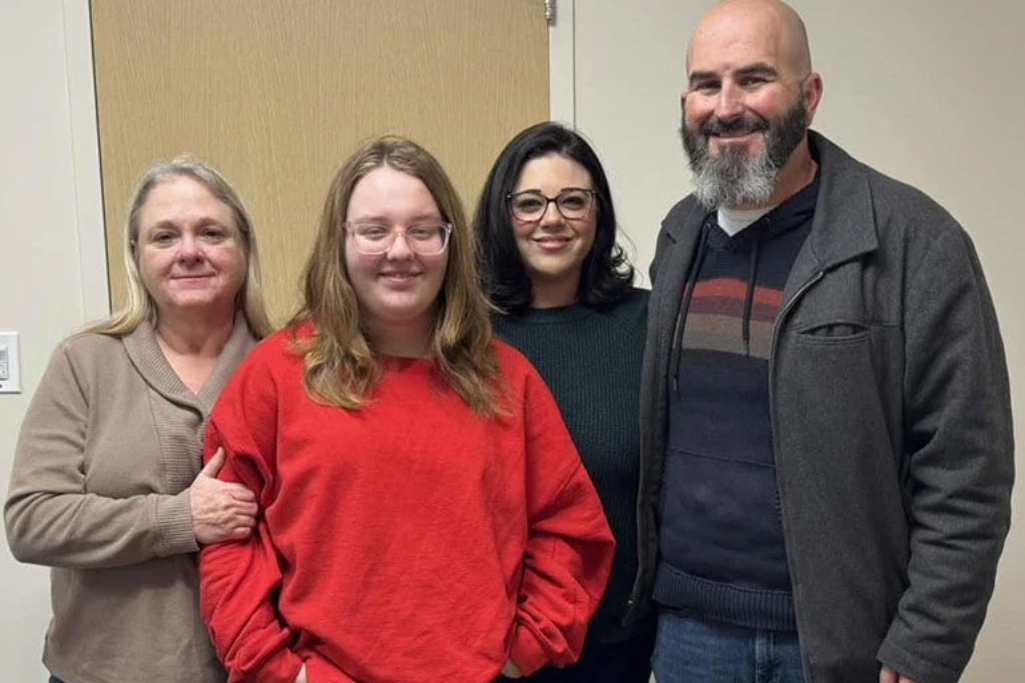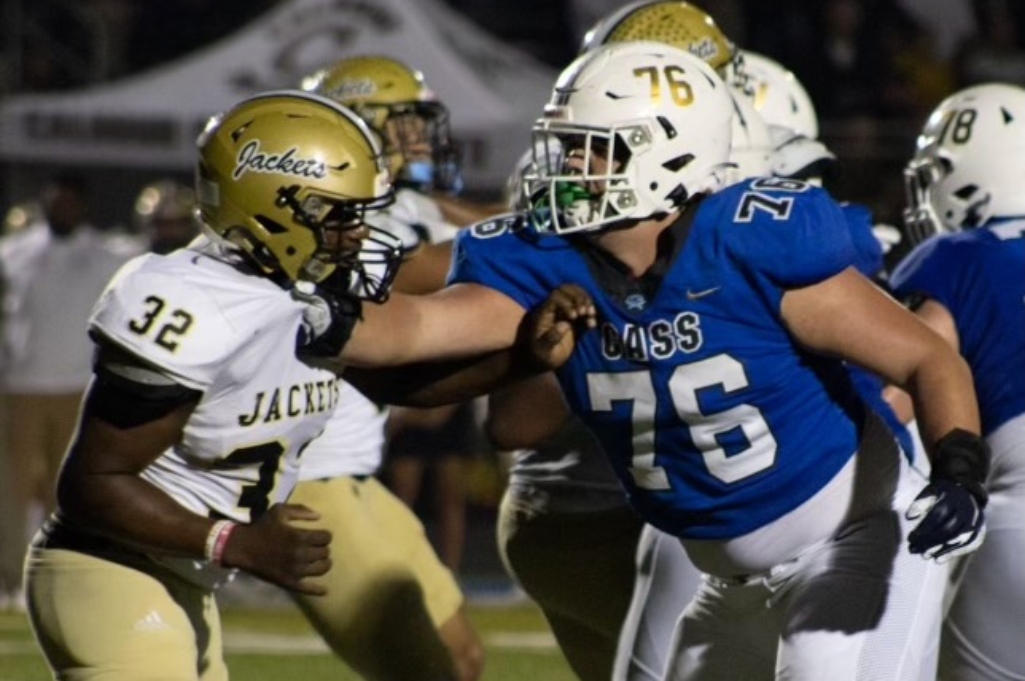
Rose Hill Baptist Pastor Matt Shamblin with wife, Chrissy, his mother-in-law, far left, and daughter.
ASHLAND, Ky. — A Kentucky Baptist pastor and his family are fighting an intense battle to obtain access for their adopted daughter to mental health care that is desperately needed. In the process, the family is raising awareness of a drastic need in Kentucky regarding the care and love for children.
Matt Shamblin, senior pastor of Rose Hill Baptist Church in Ashland for the past 10 years, said that the family is being required to surrender parental rights so that the Department for Community Based Services (DCBS) will provide access to mental health facilities their daughter “desperately needs right now,” Shamblin said.
“This is an emergency. This is medical neglect. We are desperate.” Those statements were posted on Facebook.
In a Kentucky Today interview, Shamblin said it is not only his family, but “a lot of people need help. We need help with our daughter immediately — we have been dealing with this for over a year now. Clearly the system that we have in Kentucky is tragically broken. We need to draw attention to this.”
The Shamblins adopted two daughters when they were in West Virginia, but their children have spent most of their lives in Kentucky. However, because they were adopted in another state, they are not eligible for many of the programs that are available to children who were adopted in Kentucky.
For the Shamblin family, it is both a religious issue as well as a moral one. “As a Christian, we are to care for widows and orphans in their time of need,” he said. “This is what motivated my wife and me to adopt in the first place because, as a follower of Jesus, I am adopted. We have to speak out for these children.
“We handle really well the issue of life and protecting the unborn. What about these children who have gone through incredible amounts of trauma, at no fault of their own, who have been impacted by their biological parents’ drug abuse or neglect? We are to come alongside them and advocate and care for them and help them grow.”
The Shamblins said their adopted daughter “survived foster care once — she shouldn’t have to endure it twice.
“When we know something like this is going on, how can we be silent? These are children made in the image of God,” Shamblin said.
“There would be a lot less stigma on my family if our child was in need of a heart or organ transplant.”
Shamblin said this issue impacts “a significant portion of the population, and we need to be staunch advocates for children in tragic situations like this. This is not just a Baptist issue,” he noted, saying a rabbi in Lexington shared his Facebook post.
He said statistics from DCBS reveal that more than 8,200 children are in care through DCBS. “We are told it is an overloaded system — we have social workers who are overworked and underpaid, yet in order for children to access the highest level of psychiatric care in Kentucky, they have to be part of a system that is overburdened now.”
More than 90% of the children in DCBS care are there because of abuse and neglect. “There are scores of families who are not abusive or neglectful — yet there are children being added to that system so they can get some level of care. That’s tragic.”
“When we hear from the governor and other politicians that they care for Kentucky children, my plea is to care for all of Kentucky’s children. My children are far more Kentuckians than West Virginians. We need our children to be treated like Kentucky children and have those opportunities — we need the system fixed.
“We love our daughters very much, but this has been a very long year and our daughter needs help.”
In the past year, one daughter has been in four hospitals and three residential treatment facilities. “She needs a higher level of care, but we are told as long as my wife and I maintain rights, she doesn’t have access to care in Kentucky and may not be able to get it anywhere else in the nation. We have been told that in order to discuss what is possible with DCBS, we have to open a case against ourselves.
“People tell us this is not how this works. I’ve been told that by judges, state representatives, therapists, psychiatrists. The reason they say [that] is they have not been involved in it.
“We have no advocate from the state of Kentucky for our daughter — none. The only way we can get it is to commit her to the Cabinet. We have battled this out and navigated a very broken system through very personal friends. We have multiple therapists and people with legal backgrounds and hospital board members who have helped us navigate this. But the average person usually doesn’t have that.”
He added, “Mental illness is in large part invisible, but it is a contributor to crime, homelessness and on and on it goes.”
Mental health professionals have told him this problem “is not just increasing, it is becoming exponentially worse. This is a funding issue, a personnel issue, a priority issue.”
The Shamblins recently learned that records from a hospital or treatment facility do not travel with the child.
“That means every time she goes to a new hospital or treatment center, she starts from ground zero, which delays care drastically,” Shamblin said. “As a parent, if I want the therapist’s notes to carry (to the next facility), it can take up to 30 days to get those notes.”
Shamblin mentioned that his local state legislators along with Senior Advisor Rocky Adkins “have all been wonderful, but they are all functioning in a very broken system.” Shamblin urged Kentucky Baptists to get involved by contacting not only state government officials but also those at the federal level to find solutions that will enable families to get the care that is sorely needed for their families.
(EDITOR’S NOTE — This article originally appeared in Kentucky Today.)


